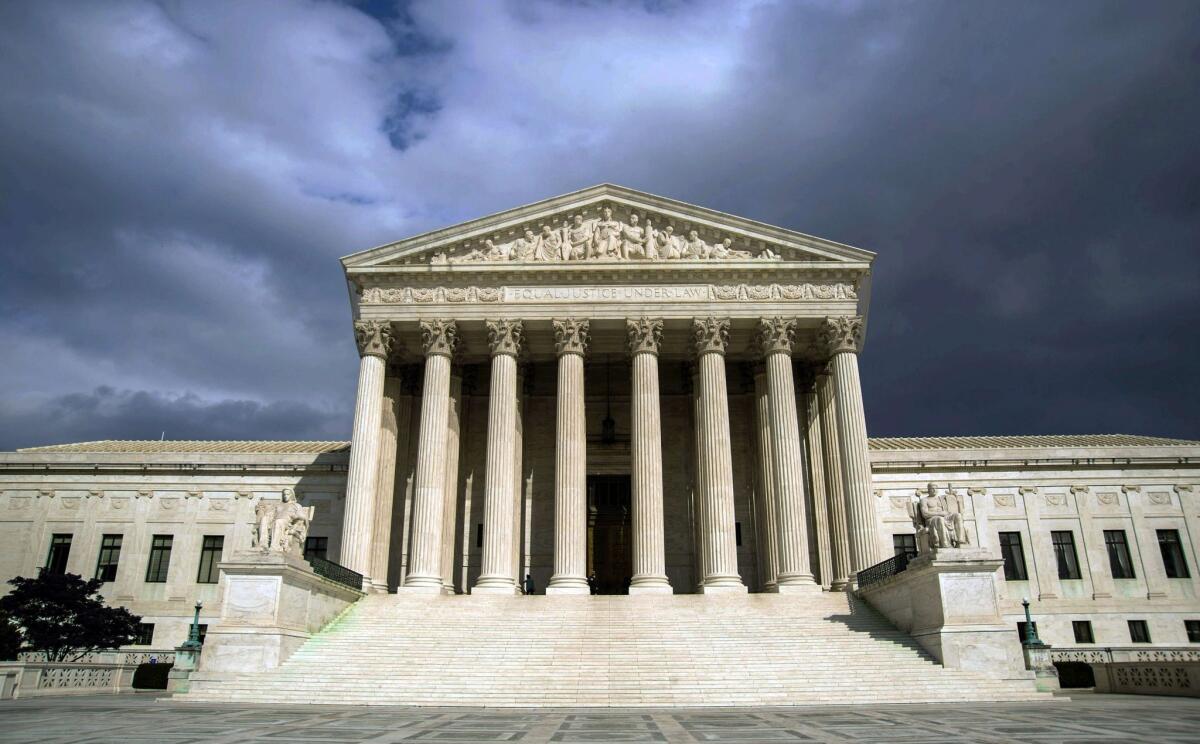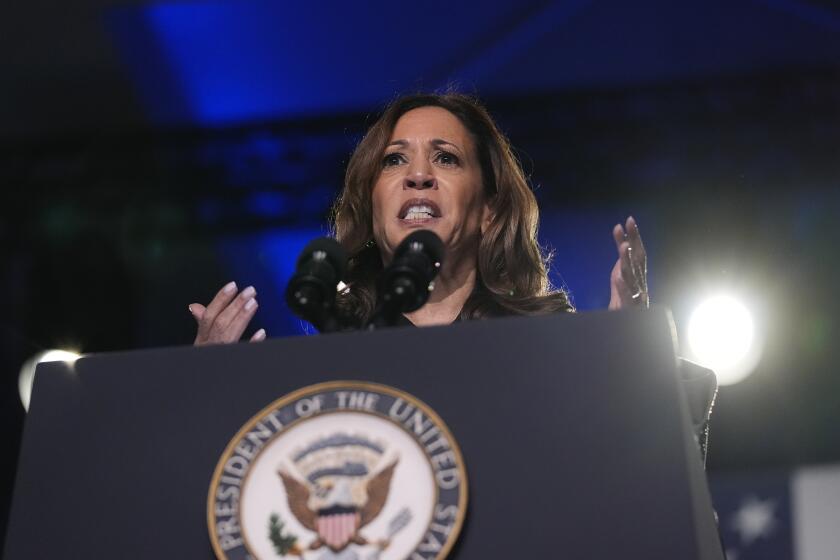Supreme Court considers racial bias in jury selection

The Supreme Court confronted the recurring problem of racial bias in selecting jurors Monday, and the justices sounded ready to warn prosecutors again that they can’t exclude all blacks from the trial of a black defendant.
Nearly 30 years ago, the justices said prosecutors must give a “neutral” and non-racial reason for excluding prospective black jurors. Trial judges were told to cast a skeptical eye on these explanations.
But the case of Timothy Tyrone Foster, a Georgia death row inmate, showed the shortcomings of that approach.
NEWSLETTER: Get the day’s top headlines from Times Editor Davan Maharaj >>
------------
For the Record
Nov. 2, 5:45 p.m.: An earlier version of this article omitted the first name of Georgia inmate Timothy Tyrone Foster.
------------
Foster was 19 years old in 1987 when he was tried and convicted by an all-white jury in Rome, Ga., in the murder of a 79-year-old retired school teacher who was white. In a closing argument, the state prosecutor urged the jury to send a message to “deter other people out there in the projects.”
Decades later, notes kept by the prosecutors revealed that they had carefully tracked all of the black people in the jury pool. They were described as “B’s,” and every one was removed from the actual jury. The trial judge accepted the prosecutors’ reasons as plausible, and not evidence of racial bias.
But Justice Elena Kagan said Monday that the notes “suggest that what the prosecutors were doing was looking at the African Americans as a group, that they had basically said, ‘We don’t want any of these people.’”
It suggests “a kind of singling out,” she said. “Isn’t this as clear a Batson violation as a court is ever going to see?”
She was referring to the 1986 ruling in Batson vs. Kentucky, which put prosecutors on notice that they must explain their reasons for excluding blacks from a jury.
Beth Burton, a Georgia state attorney, defended the prosecutors in Foster’s case. She argued they were tracking blacks in the jury pool because they knew their actions would be scrutinized later.
The prosecutors had said they removed several black women from sitting on the jury because the women had “serious reservations” about the death penalty.
The case is complicated because in nearly all American courts, lawyers from both sides -- the defense and prosecution -- are permitted to freely exclude a fixed number of potential jurors. These so-called peremptory strikes permit excluding jurors based on a hunch or bias.
But Stephen Bright, a prominent defense lawyer from Atlanta and president of the Southern Center for Human Rights, urged the justices to clearly say again that “strikes motivated by race cannot be tolerable. This is a serious problem, not just in this case.”
Foster’s case is unusual, he said, but mostly because of what the prosecutors notes revealed. “We have an arsenal of smoking guns in this case,” he said.
The justices spent much of the hour debating a procedural issue.
The Georgia Supreme Court had turned down Foster’s appeal without comment. Several justices suggested Monday that they should send the appeal back to Georgia and ask the judges there to explain their decision.
But a majority of justices also sounded highly skeptical of the reasons prosecutors had offered in the original trial. A ruling in favor of Foster could give him a new trial, and defense lawyers would argue he should not be sentenced to death.
On Twitter: @DavidGSavage
ALSO:
Brutal details of New York Mafia life recalled in ‘Goodfellas’ heist trial
How evolving public attitudes on marijuana could affect the 2016 presidential race
Nondiscrimination ordinance puts Houston at the center of latest gay rights battle
More to Read
Sign up for Essential California
The most important California stories and recommendations in your inbox every morning.
You may occasionally receive promotional content from the Los Angeles Times.











